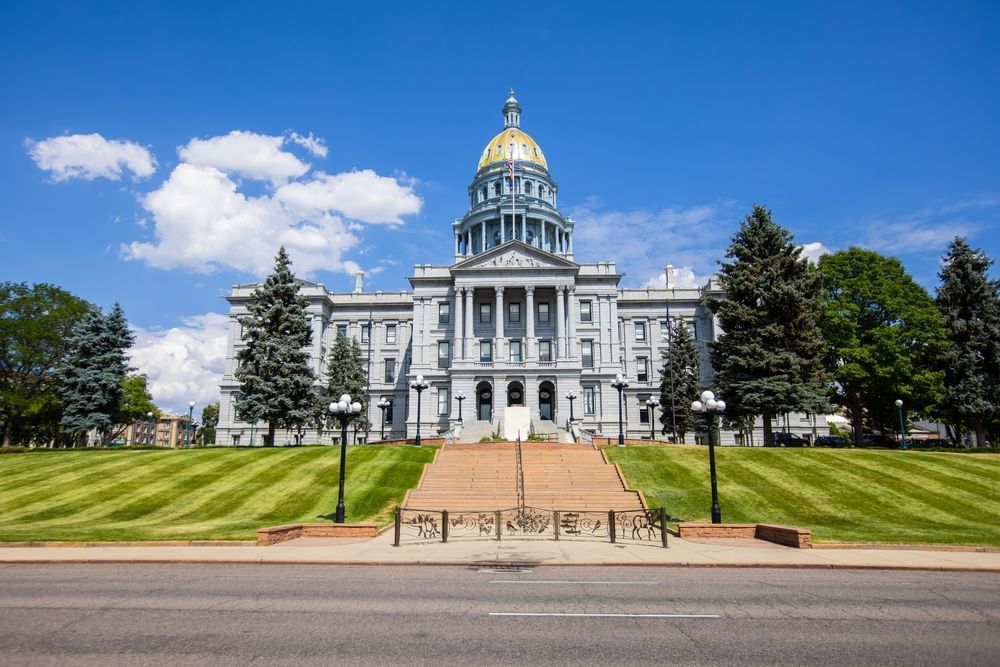Resolving family legal issues can be stressful and complicated. Emotions run high, and it can be difficult to see the matter clearly. You need objective legal counsel from an experienced family attorney. Call the Law Office of John Williams in Charlotte, NC. John Williams can assist you if you're filing for divorce. He also handles child custody and guardianship cases.
Arrange for a consultation with a divorce attorney in Charlotte, NC today.
State Issues
The Erosion of the Rocky Mountain Way of Life

The Erosion of the Rocky Mountain Way of Life
by Michael J Badagliacco, "MJB"
Editor-In-Chief, coDOGEreport
Colorado, a state once synonymous with rugged individualism, wide-open spaces, and a fierce commitment to personal liberty, is undergoing a transformation that has left many of its residents reeling. The Centennial State, long regarded as a conservative stronghold where values of self-reliance and limited government were as enduring as the Rocky Mountains themselves, is now hurtling toward a future that some fear resembles the most radical leftist visions. This shift, which began to take root around 2012 with Jerod Polis’ and friends “Rocky Mountain Heist”, has accelerated at a pace that makes even California’s far left policies seem restrained by comparison. If this trajectory continues unchecked, Colorado risks becoming a place where the freedoms its residents once took for granted are eroded, replaced by a vision of governance that critics argue echoes the collectivist dreams of the former Soviet Union.
The Erosion of Freedom
The liberties that Coloradans once held as sacrosanct, such as the right to live free from excessive government interference, are now under siege. Like a beach battered by the relentless waves of a tsunami, these freedoms are being worn away, piece by piece, with each new policy and regulation. The state that once prided itself on fostering independence and personal responsibility is now grappling with an onslaught of legislative changes that many residents feel are suffocating their way of life. From restrictions on gun rights, property rights, limitations on free speech and economic opportunity, the policies emerging from Colorado’s statehouse are seen as a deliberate effort to reshape the state into one that prioritizes collective ideals over individual autonomy.
This erosion is not a sudden phenomenon but rather the culmination of years of incremental changes that have steadily chipped away at the state’s foundational principles. For many Coloradans, the loss of these freedoms feels like a betrayal of the state’s heritage, a slow but steady drift toward a future that is unrecognizable to those who have called Colorado home for generations.
A Legislative Avalanche
In its most recent session, the Colorado legislature passed an astonishing 540 new laws, a number that dwarfs the legislative output of most states in a single year. This staggering volume of legislation has raised alarm bells among those who see it as a direct assault on the rights of Coloradans. Critics argue that these laws, rather than expanding individual freedoms, systematically restrict them. From regulations that tighten control over personal property to policies that impose new burdens on businesses and individuals, the new laws are seen by many as an attempt to fundamentally transform Colorado into a state that prioritizes centralized control over the individual rights that have historically defined it.
Not a single one of these laws, detractors claim, was designed to enhance the liberties of Colorado’s residents. Instead, they appear to clamp down on the inherent rights that have long been a hallmark of the state’s identity. For example, new environmental regulations have placed stringent requirements on businesses, increasing costs and limiting economic freedom. Similarly, gun control measures have sparked outrage among Second Amendment advocates who argue that their constitutional rights are being undermined. Other laws have imposed new taxes and fees, further straining the budgets of Coloradans already grappling with rising costs of living. For a state that once stood as a beacon of personal freedom in the West, this represents a profound and troubling shift.
The Roots of the Shift
The origins of Colorado’s leftward drift can be traced back to 2012, when the state began to experience a political upheaval dubbed “the Rocky Mountain Heist”. This period marked the beginning of a concerted push by leftist forces to transform Colorado’s political landscape. What began as a subtle shift has grown into a relentless campaign, with policies that reflect a utopian vision rooted in socialist ideals. The pace of this transformation has been breathtaking, outstripping even California’s well-documented embrace of communistic governance.
“The Rocky Mountain Heist”, was not a single event but rather a series of coordinated efforts to shift Colorado’s political center of gravity. Far left groups, backed by significant out-of-state funding, began targeting key legislative races and ballot initiatives, slowly but surely gaining ground in a state that had long been considered a conservative bastion. Over time, these efforts bore fruit, as Democrats gained control of the state legislature and governorship, paving the way for an aggressive agenda of leftist policies.
The consequences of this shift are evident in the growing discontent among Coloradans who feel that their state is slipping away from them. The conservative values that once defined Colorado, such as limited government, personal responsibility, and economic freedom, are being overshadowed by a vision of governance that prioritizes centralized control, expansive social programs, and restrictive regulations. For many residents, this feels like a betrayal of the state’s identity, a departure from the principles that made Colorado a desirable place to live.
The Impact on Coloradans
The impact of Colorado’s political transformation is being felt across the state, from the bustling streets of Denver to the rural communities of the Eastern Plains and Western Mountain Towns. Small business owners, once the backbone of Colorado’s economy, are struggling under the weight of new regulations and high taxes. Farmers and ranchers, who have long embodied the state’s independent spirit, are facing increasing restrictions on land use and water rights. Even everyday citizens are feeling the pinch, as new laws limit their ability to make choices about their lives, from how they heat their homes to how they protect their families.
Perhaps most troubling is the sense of alienation that many Coloradans now feel. For those who grew up in a state where personal freedom was a given, the rapid pace of change is disorienting. Town hall meetings and community forums are filled with voices expressing frustration and fear, as residents grapple with a government that seems increasingly out of touch with their values. The sense of community that once defined Colorado, where neighbors respected each other’s independence, is being replaced by a growing divide between those who embrace the state’s new direction and those who feel it is being forced upon them.
A State at a Crossroads
Colorado now stands at a crossroads. On one hand, there are those who view this shift as a betrayal of Colorado’s heritage, a race to the bottom that threatens to undermine the very principles that made the state great and a desirable place to live. On the other hand, there are those who welcome the state’s transformation to a socialist society. They argue that the new laws are addressing critical issues like climate change, income inequality, and social justice, bringing Colorado into the 21st century. A vision that is the antithesis of the vision of the founders of this great nation!
The sheer volume of new laws passed in the recent legislative session serves as a stark reminder of the challenges facing Colorado’s residents. Each new regulation, each new restriction, feels like another step away from the state’s roots as a place of opportunity and freedom. For many, the question is not just about policy but about identity: what does it mean to be a Coloradan in an era where the state’s values seem to be shifting beneath their feet?
As Colorado continues down this path, the future remains uncertain. Will the state find a way to balance its leftist ambitions with the individual liberties that have long defined it? Or will it continue its race to the bottom, becoming a place where the freedoms of its residents are sacrificed on the altar of a utopian vision? For now, the answer is unclear, but one thing is certain: the stakes could not be higher for the people of Colorado. The choices made in the coming years will determine whether the state can preserve its unique character or whether it will become a shadow of its former self, a cautionary tale of what happens when a state loses sight of the principles that once made it great.
